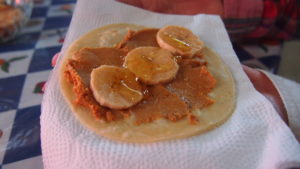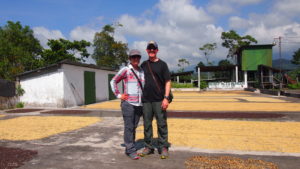Travel Reflections After 6 Months On The Road & Wrapping Up Our Time in Mexico & Central America
As I reflect on these past six months, I am in awe about how much has happened in this period of time; these have been the most eventful and memorable six months of my life! This journey has had its ups and downs, as do our lives back at home, but of course, in different ways. We’ve had the opportunity to experience so much that it’s difficult to truly process it all and impossible to convey everything to others, although we do our best to try; we have a feeling we’ll be personally processing it all for years to come, still learning and growing from it. My desire to break free from our typical American life and take the huge leap to do something different and switch things up, and actually doing it, was a life-changing decision in so many ways. I feel personally enriched by our travels, from what we’ve seen and experienced; the people we’ve met, interacted with, and learned from; the cultures we’ve encountered and immersed ourselves in, including our persistence in learning more Spanish and improving in our abilities. Living real life on the road and seeking to find out more about what real life looks like throughout Mexico and Central America especially has made me more patient, understanding, and receptive. I’m better able to endure and push through unpleasant, uncomfortable, and undesirable situations with grace. It has strengthened my sense of self and the depth of our marriage. It has made clear how little we actually tangibly need on a daily basis to live and the overwhelming amount of stuff we are privileged to have in the U.S. It has opened my eyes to awareness of geography and cultural differences between not only countries, but different languages and communities within them. Having traveled in the limited capacity that I had before this adventure started, wanting to just see and experience and being open and receptive to whatever happened, and now having visited 15+ U.S. states (though some were just driving through, not having a meaningful experience in each of them, which is what I think really counts as being there) and 8 countries (not including the U.S., and including El Salvador where we were only at the airport but technically on their soil), I wrap up this chapter of our journey feeling completely fulfilled by it. It’s not always easy, but it’s been worth it, and while we’re ready to end our time in this part of the world, it feels a bit sad, too.
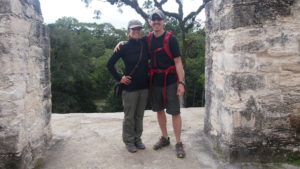

Here are some reflective takeaways and acknowledgements of what we’ll miss (or not), or what we’re looking forward to in the near future:
- We will miss the daily opportunities we have to speak Spanish and continue to develop our language knowledge and skills. On a related note, learning (enough) Spanish has enhanced our interactions with others, afforded us more opportunities to learn and experience culture, and practically gotten us through some logistical situations that would have been even more challenging to figure out without being able to speak it. It’s also earned us more respect from locals in various places, as in more touristed areas, people are generally (positively) surprised that we speak Spanish because the vast majority of white visitors don’t know a word of it, or if they do, not much beyond, hola (hello), gracias (thank you), and adios (goodbye). It often makes us feel good and is reassuring of our progress! A HUGE thank-you to our Spanish school teachers, Claudia and Luis, who answered a lot of our language and cultural questions and noticeably helped us in accelerating our learning process!
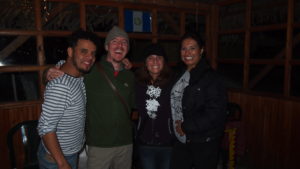
- As much as there are times where I insist I cannot eat another meal with rice and beans and am on the verge of a travel meltdown proclaiming it — because in Central America, tipico (typical) food for breakfast, lunch, and dinner features rice and beans, and it’s among the cheapest food you can get that is hearty enough to fill you up and at least the beans provide some good nutrients — I will notice its absence from my diet and fondly remember the days when it was so readily available.
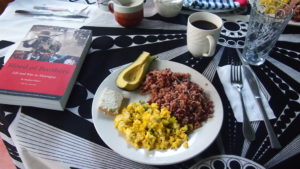
- Tortillas will never be the same. “Las tortillas, las tortillas!” If I only had a penny for every time we heard someone driving down the street announcing this over a loud speaker! Hand-written, “Se venden tortillas” (We sell tortillas) signs can be found everywhere on buildings, usually residences. You can hear the slapping of tortilla dough made of maiz (corn) in the hands of their makers, flattening it, while walking down the streets, where there are women making fresh tortillas for restaurants or selling them independently on the street or out of their homes. I was not a big tortilla fan before traveling throughout Mexico and Central America, but they have grown on me and I have developed an appreciation for them — The lengthy amount of time and intricate process for making them fresh, which they almost always are in this part of the world; the differences between their thickness in different geographic areas (in general, they seemed to get thicker the further south we traveled, and our favorite type was prepared by our local host family we were connected with through Puesta del Sol on Isla de Ometepe in Nicaragua); and their cultural and historical significance. In some indigenous cultures, for example, the Mayans, maiz is a source of sustenance and they believe they were created from it. In Mexico, we were more often served fresh tortillas covered in a towel in a basket (to keep them warm) with salsa before a meal in lieu of chips. Tortillas can also be (and often are) served with every tipico meal. I will miss their warmth, texture, and feel in my mouth and belly!
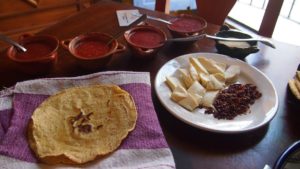
- We will miss walking down the street and hearing reggaeton music blasting out of speakers at appliance and electronic stores, presumably their method for trying to attract customers. I mean, who wouldn’t feel like buying an oven or TV after that kind of unique invitation? 🙂
- We will not miss the smell of burning garbage. It’s common in Central America, especially in more rural, remote, and/or impoverished areas. That plastic-y smell burns my nostrils and I know instantly that it’s not the smoke from street food cooking.
- We will miss the pleasantries exchanged among strangers or people we know. Greeting people and being greeted while walking down the street, entering or leaving establishments, and encountering people in general with, “Buenos dias!” (Good morning), “Buenas tardes!” (Good afternoon), “Buenas noches!” (Good evening), “Buen dia!” (Good day), “Buenas!” (short for, Good whatever time of day it is), and “Vaya bien!” (literally, “Go well”). It is so polite, friendly, and feels nice. There is also, “Buen provecho!” (Have a good meal), which people usually say as they pass a table of other people eating, whether they know them personally or not. There really isn’t an equivalent in the U.S., sadly, other than occasionally making eye contact with someone while walking down the street and saying, “Hi”, or saying, “Cheers!” to the people you’re eating with personally before starting to eat together.
- We will miss the community gatherings of people in common, public areas, such as in the main squares of town or at local markets. There is so much life happening out on the streets, from people just hanging out to selling things to walking around. There are so many sounds and smells (good and bad). Life in the U.S. on the streets, outside of major cities, is usually spread out, quiet, and uneventful. Sanitized, as Aaron describes it. On a related note, we will miss the main squares which we’ve encountered throughout Mexico and Central America in most cities we’ve visited; an outdoor, public space with a large cathedral, government buildings, and/or cafes and restaurants overlooking it.
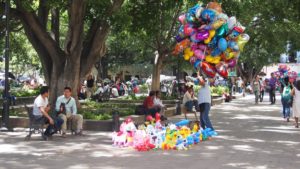
- We will (and won’t) miss hearing fireworks at random times of day and night. At first, it’s a bit off-putting and I thought they might possibly be gunshots. After awhile, we came to realize what it actually was and expected it, and the ones that made us jump because they were so deeply loud and unexpected were few and far between (for me, usually when they were in close proximity). In Oaxaca in Mexico, we were told it’s usually teenage boys (the fireworks were among the most common and loud here, often heard from our bedroom at night). The most memorable fireworks, though, were on Christmas Eve and New Year’s Eve in Antigua, Guatemala. Apparently the whole country erupts in fireworks at midnight on both occasions, and then (though not as many and not visible) at noon on Christmas Day and New Year’s Day. We’ve never seen anything like it! If you turn 360 degrees, there are fireworks (that look like the professional kind) going off all around you in the distance. Fireworks shows in the U.S. will never be the same for us!

- We will miss the affordable prices! (Well, everywhere except Costa Rica). While we were in Mexico, the peso was about $20 MX to $1 USD. We would get lattes for like $1.50 USD and (in the beginning) eat at nice restaurants where the bill would come to half of what it would in the U.S., if that, for the same amount and quality of food and drinks. Our trip budget is an average of $100 per day to include everything (i.e. food, accommodations, activities, transportation, etc), less if we can swing it, and this has only been possible because of the lower cost of living and exchange rates in Mexico and Central America (again, excluding Costa Rica, which is why we’ve limited our time here to one week at the end and haven’t done much but are not exactly making our budget). It will be difficult to return to the U.S. and travel in Europe because we are used to our money going a lot further in this part of the world and getting much more for it than we would elsewhere.
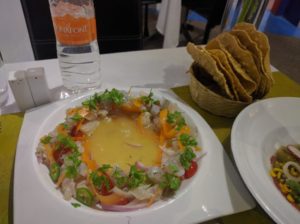
- We will miss negotiating for goods and services (kind of). Taxi and tuk-tuk rides, food and handicrafts in the markets, and other random stuff is all negotiable. Restaurants and traditional retail stores are not. The benefit to negotiating is that if you don’t like the price, if something is seemingly muy caro (very expensive) for what they are selling, you can walk away and try your luck with another vendor (at which point, they usually, but not always, come down on the price). However, it seems so arbitrary, and I certainly had moments of losing my patience when we were trying to go somewhere and Aaron insisted on continuing to find and barter with more taxi drivers, insisting he could get us a better price. Also, when it came to food and handicrafts at markets, the cost of the items were often so cheap anyway, I felt bad trying to negotiate to pay them less and often didn’t, or if I did, didn’t very much, as it felt good to support their livelihood. I will admit though, it does feel good to get an even better deal than the initial said price, and I have improved in my bartering abilities over the course of our time here. It doesn’t make me feel so nervous and uncomfortable as it did at the onset.
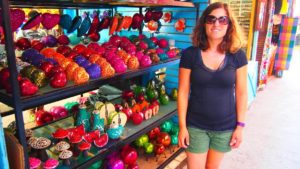
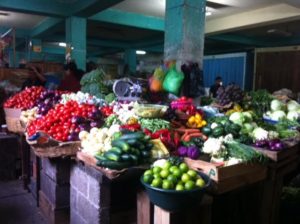
- Traveling overland throughout Central America, especially through Guatemala, is not for the faint of heart! There are many bumpy, undeveloped roads, potholes, crazy drivers that make you question why there are even painted lines for lanes to separate oncoming traffic, speed bumps (which many of our transit drivers slammed on their brakes for only to rapidly increase their speed once passing them, and repeating this process for the next ones up close ahead). Your options for getting around are by private transit vans (which are pricier, though usually direct and affordable for our travel budget, often not very comfortable and by the looks of them make you question how they are still in service for such long-distance trips, but better than the alternatives); chicken buses (which are restored, out-of-service American school buses, which are dirt cheap but even more uncomfortable, crowded, and stop often); tuk-tuks, which are efficient mostly for in-or-nearby town rides but you feel like you could fly out of them at times; or riding in the back of a pickup truck (which I said I would not do the first time I saw it but later realized in situations we encountered, sometimes it’s the only way and you either hop on and hang on or don’t get where you’re headed). You’ll be lucky to have a seat belt, and moreover, a functioning one, but even then, your driver may laugh at you and assure you that you don’t need it unless we pass a police officer (at which point, you’ll see your driver quickly put it on and take it off once we’ve passed them). On water, lanchas (small boats) are pretty much it. They can get bumpy, and the one we took out to the semi-remote island in Honduras, Cayos Cochinos, was a super rough ride that literally hurt my body when it hit some harsh waves. Then our adventure getting off of the island when there was a break in a storm consisted of a wet, bumpy ride in a small local boat (we got soaked and were glad we wore our utility pants and rain jackets), then arriving in a small town with no bus service due to the road into town being flooded, so finding information and help (in Spanish), trekking with our backpacks through near waist-high water on said road, and riding in the back of two pickup trucks on unpaved road thereafter to get to the nearest chicken bus station. More often than not, departure times are unreliable, as our transit either arrived up to an hour-and-a-half late or half an hour early, expecting us to be ready and wondering why we weren’t. We often felt like the transit van drivers were doing us a favor by taking us along for the ride and dropping us off where we needed to be, because they would pack their vans to their capacity (adding seats in the aisle), randomly stop for breaks without forewarning (or one time, we were promised we’d stop to eat and actually didn’t until a few hours after the announced time), and run personal errands (like drop off a tire or buy yogurt for a hotel in a remote area that calls him and asks) or pick up a friend along the way. I’ve come to expect on our travel days that nothing will go as planned and to just be ready to wait indefinitely, which helps me manage my expectations and I’m pleasantly surprised if it ends up going relatively smoothly instead. Having a playlist of my music on my iPod has helped me get through these days, where I often make up and practice new choreography in my head for my future Zumba® classes and/or try to comprehend as much Spanish music as I can. Our overland travel days have spanned from a few hours or less up to seventeen hours. Sometimes we’ll stay on the same mode of transport the whole way, and other times we switch one, two, three, or more times. There may or may not include a border crossing, which may be quick and easy or may hold us up for some reason (such as the currency changer guy running out of the needed currency, or the new country we’re entering trying to make money on us by insisting we either go back to the prior country’s border for a missing stamp we weren’t given or pay them a large sum of money to remedy the situation). As someone who previously did not like to be in the car for too long when on the road in the U.S., that type of travel is absolute cake for me now — Yes, put me in a modern vehicle with plushy seats, functioning air conditioning I can readily control, relying on my own driving skills, and being able to stop whenever and wherever I want to eat or use the bathroom, on paved roads where people overwhelmingly follow the rules of the road, for however many hours, and I will happily oblige! I will say that these transit experiences in Central America have made me a more hearty traveler, and I felt I truly earned the awesome experiences and sights in certain places we visited because of them! I also think our overland travel throughout Europe will be much easier and I will appreciate it more now. I seriously questioned whether or not I could make it traveling overland throughout the rest of Central America after certain rides in Guatemala. BUT, I made it and I’m proud of myself for sticking with it, like I’ve earned a rough traveler badge of honor or something! With that being said, I’m glad we’re doing this at this point in our lives, in our 30’s, because I’m not sure I could handle it later on.
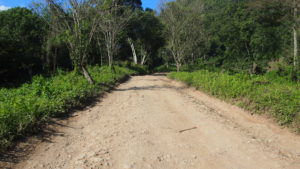
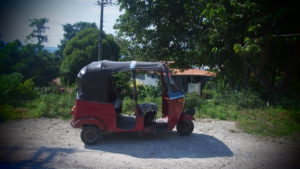
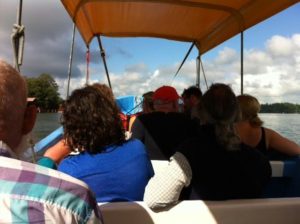
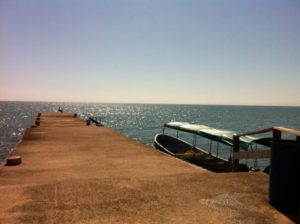
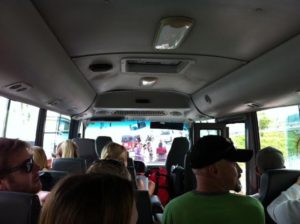
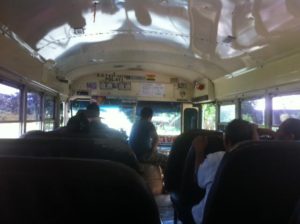
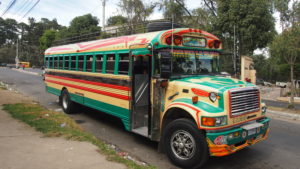
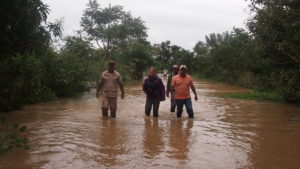

- We’ve seen some amazing stuff, especially when it comes to natural beauty!
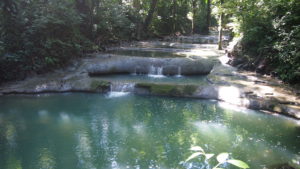
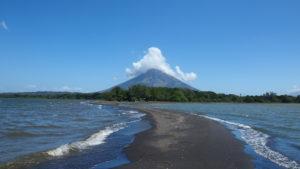
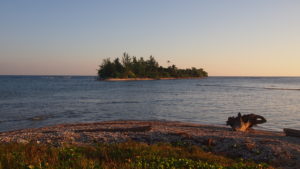
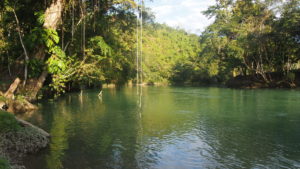
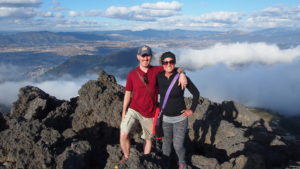
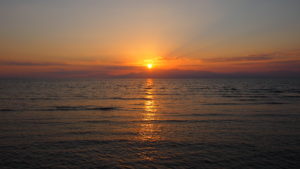
- We will miss the awe of the moments where we sit back and really process where we are on a map. I remember looking at Central America, so unfamiliar, and not even knowing all of the countries it consisted of, easily intermixing them with countries in South America, embarrassingly but seemingly like many Americans. Through navigating and figuring out where we waned to go (or not), I’ve learned not only the geographic placement of Central American countries, but regions and destinations within each of them. It’s so cool to process that we’re in a non-touristy city in Guatemala taking Spanish classes, or on a remote, semi-private island in Honduras, or staying with a local family in Nicaragua. Even traveling overland with our backpacks in situations that aren’t so comfortable, I think back to sitting at my desk at work in a comfortable office day after day in my same routine, yearning for adventure outside of its walls. Then I look at the time on my watch (and account for the two-hour time difference) and imagine what I would be doing there instead of where I am in that moment. I could have never imagined back then what exactly I’d be experiencing on the road, and I often still don’t know from day-to-day, which is all a part of the excitement of the journey.
- We strongly prefer a slower pace of travel off the beaten path and are planning our future travels to match this philosophy we’ve developed. Some of our most memorable, rewarding experiences have happened when we’ve slowed down our pace and stayed awhile, digging below the surface, familiarizing ourselves with the area, meeting locals, learning more about what there is to do beyond the obvious sites. Also, living life on the road can get tiring, and sometimes it’s nice to settle into a place and get into a routine of some kind. We aren’t “box checkers” who want to see all the popular sites countries are known for. Chasing that is exhausting and expensive. Instead, we like to really get to know a place as much as we can — The culture, the people, what life is actually like for locals. Sure, we enjoy some more touristed areas at times for usually nicer infrastructure and comforts, and staying on the typical tourist path usually (though not always) means more developed roads and transportation options. But it can also provide a fabricated sense of what a place is like. Things can also be noticeably more expensive in these areas, the food not as good or authentic (although I have found and appreciated some awesome, healthy options and cafes with really good lattes that I’ve enjoyed). It’s sort of like going to a resort, which is a more extreme example — It’s so insulated, pricy, and fancy, your every need is anticipated as you are waited on with impeccable service, and it’s also relaxing, comfortable, and super nice — BUT, that resort could be in any country of the world, as there isn’t anything unique about it really and you’d hardly know you’re in, let’s say, Mexico. The resorts are far from what the real Mexico is like, which seemingly few Americans take the time to see (and we think most Americans are really, truly missing out). Anyway, our future travels will likely be in the form of housesitting and volunteer work more often than we made ourselves flexible and available for in Mexico and Central America.
- We like to find opportunities to support local families, communities, and organizations while learning more about them. Sometimes this is choosing to stay at an AirBnB accommodation renting a room out of someone’s home. Other times it is through a homestay. We’ve participated in eco and community tourism. Our tuition from the Spanish schools we enrolled in, Sisai Spanish School in Xela, Guatemala, and Cambio Language School in Antigua, Guatemala, contribute directly to the education of local children who would not otherwise have the same access to it. De La Gente connected us with a family in an indigenous community near Antigua who produces all-natural peanut butter, and we received a hands-on experience, two containers of their product, and a tasty snack of tortilla, peanut butter, honey, and banana in exchange for directly supporting their family business. Aaron participated in a volcano hike from Xela, Guatemala, to Lago De Atitlan, Guatemala, through Quetzaltrekkers, where most of the proceeds support local community needs. We supported a local family on a coffee plantation in Guatemala by paying to have lunch in their home and enjoyed conversation with the matriarch of the family who had prepared it for us through Monte Verde Tours. We were partnered with a family on Isla de Ometepe in Nicaragua through Puesta del Sol for a homestay, where we dine with the family for two meals per day they’ve prepared and enjoy their company and conversation; we were invited to tour their family finca, or farm, where they proudly grow bananas, avocados, and citrus. We make an effort to eat at locally-owned places instead of chains and have visited local markets for our produce and goods, too, in various places throughout our travels.

Us with some of our host family members, Socorro and Francie, on Isla de Ometepe, Nicaragua 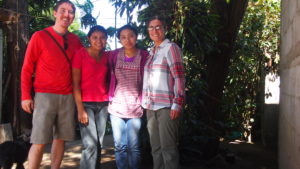
Us with Lidia and Lilian, the peanut butter experts!
- We’ve learned about so many cultures within what is classified under the generic umbrella of “Latin” or “Hispanic” in the U.S., and that there are so many different languages spoken in this part of the world, not just Spanish. For example, Guatemala has over 20 indigenous languages, and many indigenous people learn Spanish as a second language, if they even speak Spanish at all. In Livingston, on the east coast of Guatemala, the Garifuna people have their own distinct language, which is a mix of a handful of languages including French, Spanish, and Creole. I’ve never thought to ask my Latino friends where their family’s roots originate from specifically, if they have family there, if they’ve visited there, what traditions they uphold, if they speak Spanish or other languages, etc. For example, if I’ve met someone from Mexico, it’s never crossed my mind to ask from what part of Mexico, probably because I wasn’t familiar with its geographic or cultural differences in the first place. There are so many Spanish-speaking countries and each with their own history and sub-cultures and language dialects, or completely different languages. I am fortunate that our travel has opened up my mind to this, giving me more cultural awareness and sensitivity and making me less oblivious.
- As far as our gear, we think we’re doing pretty well for ourselves as far as stolen or lost items go. To date, we’ve had our phone pick-pocketed early on in Guanajuato, Mexico; lost our sun glasses (both of us within one day of each other on Isla de Ometepe in Nicaragua); I’ve had my two racerback bras stolen from my dirty laundry bag near Punta Gorda, Belize (seriously, my only two real bras – I’ve been living in sports bras ever since – but they’ve since been recovered by our host from the kid who took them and will supposedly be mailed to me in the U.S.); misplaced my headlamp; Aaron had a dog rip his pants (and is in the process of a travel insurance claim to recover the cost); and Aaron left his wedding ring behind on Isla de Ometepe (which is, thankfully, being mailed to the U.S.). Not bad for six months of living out of a backpack and moving around as much as we do!
- It could always be worse. Whenever something undesirable happens, we try to remind ourselves of this, and we often later find out what worse looks and feels like! This is especially in regard to transit. Also, we remind ourselves of the big picture of what we’re doing and how fortunate we feel to be in the position we are to be on this long-term travel journey, which has its ups and downs but is overall a great experience for so many reasons.
- Our aliments to date: Food poisoning (including explosive diarrhea, vomiting, and both in succession of one another — diarrhea, stand up and turn around to vomit, sit back down for more diarrhea), intestinal infections (included what was just described), yeast infections, congestion/common cold symptoms, dehydration, back pain, ankle sprain, body aches, headaches, sunburn (only one really red sunburn for us both was the result of using sunscreen we bought that was falsely advertised and made in China). Still worth it? YES!
- I will miss going into a local Zumba® class and dancing in the midst of people who actually listen to most of the music in class as popular Latin music outside of class (especially reggaeton). People singing the words to songs as they dance. Learning from instructors who grew up in a culture where cumbia, salsa, and merengue music and dance is taught and seems to come naturally to their bodies. Pleasantly surprising locals when the music plays that this white girl can dance and making connections through it. I will continue to seek out Zumba® classes as we continue in our travels, but it won’t be quite the same experience, I imagine. Although, I will have the opportunity to learn about more local, cultural music and dance in other countries!
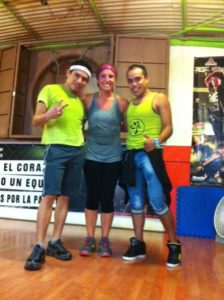
- I will miss pan dulce (sweet bread) shops (panderias), although I indulged in those more in Mexico than in Central America.

- I am excited to have a smart phone again! We got reimbursed from our travel insurance claim and purchased the same phone and plan, but the replacement phone has been waiting for us in the U.S. because Google Project Fi doesn’t ship outside of the U.S. Even if they did, it would have been a major challenge to receive it because of how often we move and the unreliable mailing systems we’ve encountered (for example, in Guatemala, all international mail was not in service for the full two months we were there). We’ve certainly learned to adapt to not having a smart phone in our travels, often relying on local maps and stopping to ask someone if we needed to. I’m lucky to have Aaron, who is a natural, experienced outdoorsman and always seems to know the way. I think traveling without a phone has given me a more authentic backpacking experience! Plus we are traveling with a laptop, iPad, and iPod, so we can use WIFI to look up what we need to when it’s available. BUT I welcome having it back (Aaron, not so much).
- I am looking forward to the opportunity to downsize my backpack. I’ll admit it; I brought too much stuff with me, although at the beginning, I thought I had packed perfectly. I’m traveling with a carry-on sized backpack, but I have stuff hanging off of it. Traveling with its contents has given me a realistic picture of what I actually need and what is nice to have but really isn’t a bare necessity. Aaron has a few items to take out of his, but he packed quite accurately.
- Most places that people generalize as unsafe are actually fine. Caveat: It depends on the area of country or city within it, and the times of day you’re walking around. There are also places and times I won’t walk around alone. The best source of information has come from locals. In some places, it is advisable to stay on the tourist path, and we do. But overall, we’re glad we haven’t missed out on certain experiences because of fear based on generalized perceptions, which are sometimes overblown and/or not specific. Rather than believing everything we hear when we are strongly cautioned, or urged not to go to a particular place, from people who haven’t been there themselves (but are well-meaning in sharing information they’ve heard or read), we’ve made an effort to do further research and really find out where, specifically, within a country is generally safe and where to avoid. We wish we would have spent more time in Honduras; we did let extreme caution guide our path, and we found out, once actually there, of other places within the country we could have gone and experiences we could have had that would have been relatively safe. On a related note, we are ready to visit the U.S. and future countries on our travel itinerary and not worry as much about the degree of safety, perceived or actual. I think I will have more opportunities to walk around solo. And Aaron will be able to go hiking and not have to hire a guide or be accompanied by local law enforcement.
- We are ready to drink tap water and flush our toilet paper down the toilet again. Although, we have gotten used to not doing it, and actually, we will just have a short break in the U.S. to do these things before we may likely encounter one or both of these situations again in Southeast Asia and parts of Europe. As far as preparing food goes, it will be nice to not have to wash our produce in a solution that kills potential bacteria (water is not enough since it isn’t drinkable and has its own bacteria in everywhere we’ve been except for Costa Rica).
- Machismo, or male-centric, culture was something we certainly encountered (which I noticed more than Aaron did), but it wasn’t as obvious and pervasive as I had been prepared for based on what I’d heard and read about. For example, I did not invite being cat-called while walking down the streets of Granada in Nicaragua solo, but it was also one of the only places I recall where it happened. I saw a sign in Leon in Nicaragua that read, “Hombres tranajando” (men working), and thought, what about women? (Although to be fair, maybe women don’t do the type of manual street labor men do in this part of the world due to the cultural expectations). The time where I was most personally affected by encountering machismo was during our volunteer week at the English language school in Tehauntepec. The owner and our host was very gracious, proud of where he comes from and eager to share, and hospitable, but I noticed he overtly addressed Aaron, asked him questions, and listened to his answers more, as well as gave Aaron more of the speaking work with the students and me more of the transcribing on the white board, which bothered me more and more as the week went on.
- We will miss our encounters with livestock everywhere, including in urban environments. We will miss the roosters crowing to try to wake us up early in the mornings. This was a bit of an annoyance at first, but we grew accustomed to it and even grew fond of our rooster friends. It is not uncommon to see pigs, chickens, roosters, cows, horses, and other livestock crossing the road; it was a spectacle for us at first, but now it’s just normal life.
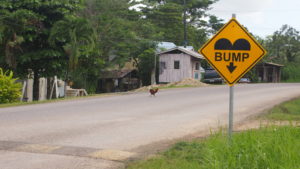
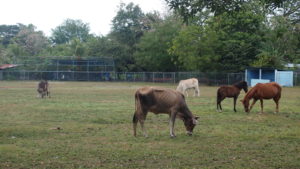
- I am comfortable with my natural look. I don’t even think about a blowdrier or putting on makeup anymore. Or clothing or shoe options beyond what is in my backpack. I use necessities for daily living (i.e. toothbrush, toothpaste, shampoo, soap, deodorant) and I’m good to go. Will I invite what I now perceive as luxuries back into my life? YES! But I have the perspective of what it’s like to live without them, and that it’s possible, and that many people in the world do.
- A reliably hot shower will be nice, but in hotter climates where we’ve traveled, it’s not really necessary. However, when the weather is cooler and there’s no warm water for a shower available, I will appreciate not having to endure it and screech quietly to myself as I speed wash to get out of there.
- Homesickness is normal, and we worked through our bouts of it. This is the longest period of time I’ve consistently been away from home. The biggest stretch I experienced homesickness personally was during November around Thanksgiving, and then it was really hard being so far away from my side of the family and making the difficult decision not to go home for my Papou’s (grandfather’s) funeral when he passed in early December. We were able to be there remotely through video and voice chats and electronically through emails (thank God for modern technology that made this possible)! Overall, we’re glad we worked through our homesickness and have gotten past it so we were able to experience everything that followed in our travel journey, and that we’re now able to go home in a planned way so it’s possible to see both sides of our family and visit in-between continents rather than from a logistically challenging place to get back home from at a sudden time.
- We’ve enjoyed the relative escape from mass consumerism. It exists in this part of the world, but it’s not as prevalent or overwhelming as it is in the U.S. For example, during the holiday season, we enjoyed not being bombarded with a drive to buy, buy, buy. Here the holiday focus is where it should be: On the family and religious traditions.
- Transactions and errands that take little time at home take at least twice, if not more, the amount of time to complete, and some feel near impossible. For example, the travel claim process and paperwork for our stolen cell phone. Or trying to renew my fitness certification. It will be nice to have that ease of completing tasks for a short time and get some things done ahead of time so we won’t have to worry about them when we go abroad again.
- I accomplished my broad, Central America wish list! I don’t like to set too many expectations, but I thought it would be fun to create a short bucket list. In no particular order:
- Hike to a volcano and take in the view from above
- Learn to snorkel
- Go zip-lining
- Go bird watching (Bonus: See the Quetzal — This is the bird of Guatemala and we actually spotted it in Costa Rica, which is apparently rare, so we were lucky!)
- Explore a jungle
- Relax at the beach/put my feet in the water/collect a shell or rock
- Go kayaking
- Take a yoga class in San Marcos (Lago Atitlan)
- Find some amazing food experience
- Willard is still hanging in! Although, we admittedly had a close call leaving him behind on Cayos Cochinos in Honduras (and felt immediately compelled to explain to our host why we had a stuffed animal with us when he found him left behind in our room, LOL).
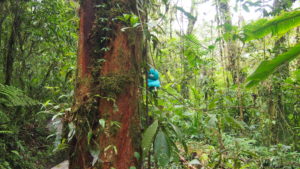
- I like to take photos of flowers and coffee art. Really, almost everywhere we’ve visited. It’s like my thing to collect since we aren’t in a position to buy many souvineers.


- And I like to find and collect seashells from various beaches we’ve been to, of which I’ve found some unique and interesting ones I haven’t encountered before!
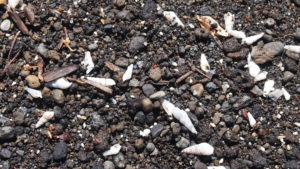
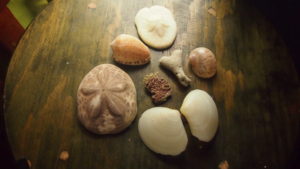
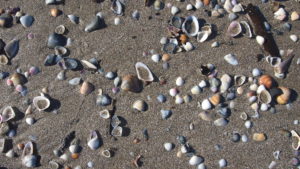
- We will miss the abundance of tropical fruits that are readily available! From papayas to guavas to pineapples to passion fruit to coconut, we’ve enjoyed it all! A cold batido (smoothie) on a hot day is so refreshing!

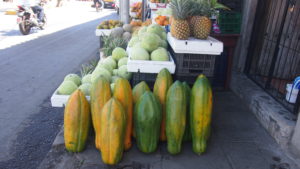

- There is a lot of over-promising and under-delivering going on, and at this point, we’ve come to expect it. For example, when a hotel or hostel advertises WIFI, a hot shower, breakfast, or air conditioning, we take it with a grain of salt until we actually test it out when we arrive. We’ve had our share of poor, or non-existant, WIFI connections, or WIFI that only works in certain areas of the property; cold showers (e.g. the hot water unit’s wires being disconnected at our hostel in La Ceiba, Honduras); included breakfast in Flores, Guatemala, that ended up being hard, white toast, like the kind children play with as a part of their play kitchen, with some jam spread onto it; and an air conditioning unit that was there in our room but broken (same hotel with the sad excuse for breakfast in Flores, Guatemala). It will be nice to return to the U.S. and live in a place where we can actually hold these establishments accountable and ask for a partial refund!
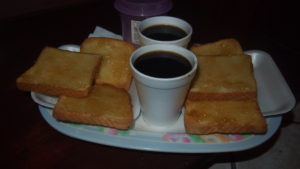
- We can’t be excited about everything all the time, we can’t do everything and go everywhere, and we need down time. Traveling long-term and overland like we are, living out of backpacks, takes its toll. We don’t have endless energy. We need to prioritize where we want to go and what we want to do practically and within our budget. Just like in our regular lives, we need time to ourselves to just hang out. We can’t be constantly moving and fully present, so we have to pick and choose what we’re most excited about and the right timing for it. For example, if we’ve been in more remote, rugged areas for awhile, we may decide it feels like the right time to head to a city or beach.
- We are preparing ourselves for some degree of culture shock coming back to the U.S. We’ve been immersed in different cultures for the past five months or so we’ve been abroad (the first month or so was spent driving across the U.S. from the West Coast to the East Coast). We’ve also been living out of our backpacks, walking or taking public transit, and moving often. We’ve stayed in a variety of accommodations, many of which have been very basic, a few really nice, and some people would likely not deem acceptable as a standard in the U.S. Our exposure to food has been unique regionally. We have found some items from home and have gotten excited when we have, especially when craving food from home (i.e. fresh, whole grain bread, all-natural peanut butter, kombucha, whole grain rice, awesome locally roasted coffee). We are looking forward to some food that has not been readily available to us (i.e. nigiri sushi, pho, Vietnamese spring rolls, a good burger with real, fresh meat). It will feel a bit overwhelming, I imagine, to have so many options available in the grocery store for each product, and to go to one and be 95% sure it will have what we’re looking for (that will be convenient). Usually we have limited options based on what the corner-type stores in the towns we stay in have (large grocery store chains have been few and far between for us to encounter while traveling throughout Central America). I imagine we’ll pick up where we left off with family and friends, which is what we’re most looking forward to about our visit!
I’m sure there’s more I’m missing at this time, but I feel like I’ve shared quite a bit! Overall, we don’t regret our decision to leave our regular lives behind and travel long-term, encompassing all that it does. We are ready to continue our journey abroad after a short visit home to refresh and reset!
We hope our journey inspires and motivates you to take a look at your own life and determine your level of happiness and self-care, and to ask yourself what you really want out of it. If you’re not getting it, we encourage you to think about how you can and to take the steps to do so (which isn’t always easy, but it’s worth it). If you’re bored, what can you do for adventure? If you are unhappy in your job, what are you really passionate about and is there another role out there for you within your industry, or in a totally different industry that takes you down a different career path, that you can start working towards? If you want to contribute to a worthy cause, volunteer your time locally or consider volunteering abroad, staying with a host family, or participating in eco/community-based tourism while on vacation. The possibilities are endless and we each only have one life to live, so make the most of it!
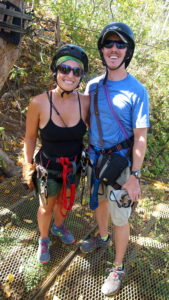
Until next time,
Elena 🙂

